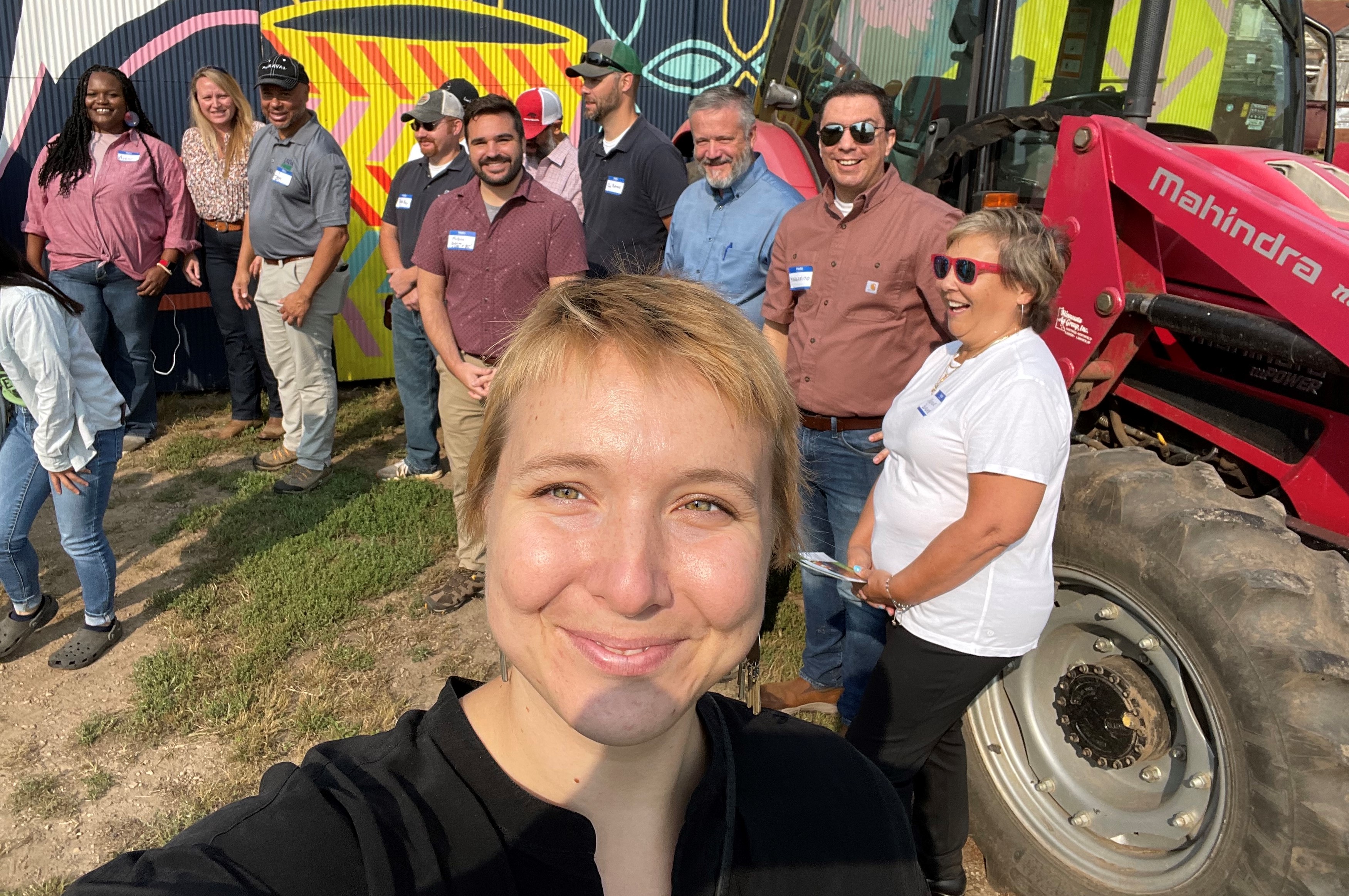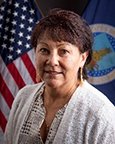January 11, 2023
Lately, I’ve talked a lot about our outreach efforts and advancing equity. But another top priority for USDA and our agency is addressing climate change. Farmers and ranchers across the country are experiencing climate impacts on their operations. My home state of South Dakota and other parts of the nation have experienced extreme drought conditions for a second year in a row, while other regions increasingly face wildfires and hurricanes, hastened by climate change.
We want to do what we can to help expand markets for America’s climate-smart commodities, leverage the greenhouse gas benefits of climate-smart commodity production, and provide direct, meaningful benefits to production agriculture, including for small and underserved producers.
This past Wednesday, I met with staff of the Blackfeet Community College in Montana and announced a new USDA partnership with the school’s Piikani Lodge Health Initiative, called Growing the Impossible: Climate Smart Commodities in Tribal Homelands. The project allows leaders of the Blackfeet Nation to invest in climate-smart and culturally embedded regenerative grazing practices to improve food security, community wellbeing, and local ecosystems. It will be led by Native women who have decades of experience in hydrology, soil science, traditional ecological knowledge, food systems development, and grazing.
This project is part of the Department’s Partnerships for Climate Smart-Commodities, which seeks to build and expand market opportunities for American commodities produced using climate-smart practices. USDA is investing approximately $3.1 billion in more than 140 projects as part of this initiative.

RMA Chief of Staff Toby Cain and colleagues visit the
Hmong American Farmers Association Cooperative Farm
St. Paul, Minnesota, September 2022
One member of our team, Chief of Staff, Toby Cain, has played an important role representing RMA in planning and announcing these partnerships. She is a native of Southern Illinois and attended Grinnell College for her undergraduate degree in anthropology and pursued her Master’s Degree in Italy studying sustainable agriculture systems. With this background, she is well suited to the task of promoting these partnerships. I talked to her about her experience assisting the Department’s initiative.
Marcia: You’ve helped organize some wonderful events for USDA’s Partnerships for Climate-Smart Commodities, such as our announcement at Blackfeet Community College. Have you enjoyed this role?
Toby: I’ve always had a keen interest in the history and current affairs of Tribal communities. I grew up near the intersection of the Mississippi and Missouri rivers, land originally inhabited by the Kiikaapoi, Peoria, Kaskaskia, Cahokia, and Tamaroa people, among others. I’m also passionate about ways we can collectively respond to climate change. So, this recent announcement touches two areas I care deeply about. I helped plan two events and I’m excited about the opportunity to be involved in these partnership announcements that help producers and organizations perform transformative work throughout the countryside. It’s the stories on the ground that mean the most to me.
Marcia: Can you touch on some of the work happening behind the scenes?
Toby: The days leading up to the announcements are jam-packed with planning. Names of the partnership recipients were kept a very close secret until the Secretary had the chance to publicly announce the investments. That means we only have a few days to plan in-person events and the orchestration of those events takes the whole USDA team. During these rollouts, I’ve had the chance to meet amazing USDA staff members who work in Advance and Scheduling, Communications, Intergovernmental Affairs, and other parts of the Department that I don’t typically have a chance to engage with. It’s a real treat!
Marcia: You live in farm country, have you heard any buzz from producers about this or other climate smart USDA initiatives? How are they being received?
Toby: Yes! I moved to Washington, D.C., for this job but I’ve spent the last 14 years in rural Iowa and I consider it home. There has been lots of buzz about recent USDA initiatives. The Food Systems Transformation efforts have invested in my food hub in Northeast Iowa, which means that my farmer friends can continue strengthening our regional system. One of the largest organic agriculture non-profits in the country, Marbleseed, is headquartered pretty close to home in Southwest Wisconsin. They received a Partnerships for Climate-Smart Commodities grant this week to help strengthen their organic education network, and I know that the funds will be invested meaningfully and thoughtfully.
Marcia: I’m glad you are excited about the work you are doing with RMA and USDA to address climate change.
Toby: The majority of my career has been spent at the intersection of climate and agriculture, working for nonprofits like Seed Savers Exchange, WWOOF-USA, and the Iowa Organic Association and for small farms in Colorado and Iowa. I feel very lucky to have the opportunity to work alongside 400 amazing civil servants here at RMA. I hope to uplift climate and equity projects, support policies and outreach efforts that will make a difference in the lives of diversified farmers, meet lots of people, and learn from you all!
**
I’m thankful to Toby for sharing her experiences and for the great work that she and all of you are doing every day to serve America’s producers!
– Marcia

Marcia Bunger is the Administrator of USDA’s Risk Management Agency (RMA). Prior to her appointment, she served as a County Executive Director for USDA’s Farm Service Agency. A native South Dakotan, Bunger is also the owner and operator of a 2000-acre farm, a cum laude graduate of Augustana College, and the first member of the Asian American and Pacific Islander community and first woman to serve as RMA Administrator.
